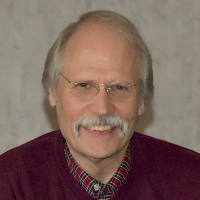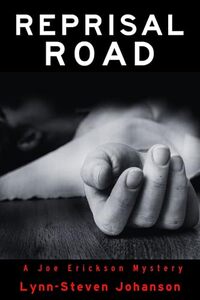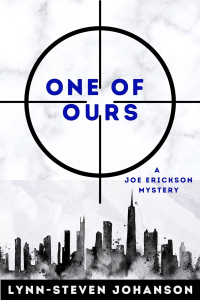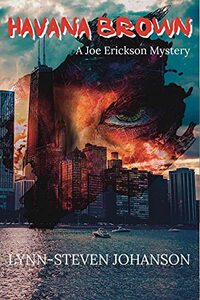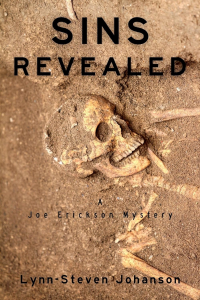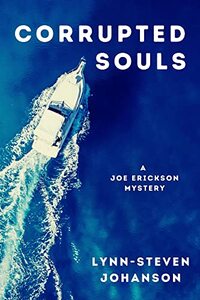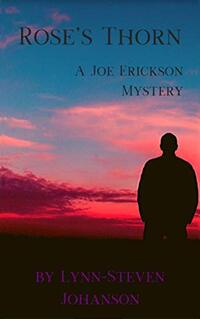Lynn-Steven Johanson Interview Published on: 20, Sep 2023
 Where were you born? What were your dreams as a child?
Where were you born? What were your dreams as a child?
I was born in Storm Lake, Iowa, and grew up on a farm outside the small town of Marathon, Iowa. I was not farmer material and dreamed of being an artist when I was young. I began to pursue that when I went to college., but I was eventually drawn to the theatre rather than art. As it turned out, theatre was just another way to express myself artistically.
Can you tell us a little about your journey into the world of writing and how you became both a playwright and novelist?My journey was a convoluted one. I began work as a theatre director and did that for 17 years. I began writing plays in 1996 and graduated evolved into writing novels in 2018. My wife suggested adapting one of my screenplays into a novel, and after ignoring her suggestion for a couple of years, I decided to take her advice. The result was my first novel, Rose’s Thorn.
With a Master of Fine Arts degree from the University of Nebraska-Lincoln, how has your education influenced your writing style and creative process?A good education expands your mind and disciplines you to do the appropriate research to make your writing accurate. As a trained director, I can picture in my mind all of the scenes and hear the interactions of characters as I write them.
Retirement from Western Illinois University must have given you more time for writing. How has this transition impacted your creativity and writing routine?It’s given me the luxury of writing every morning for as long as I choose. When I was working, I would go into the office an hour early and write. Now, I can write all morning or all afternoon if the Muses are present.
You've achieved success as both a playwright and novelist. What do you find unique about each form of storytelling, and do you have a preference between the two?When I began writing novels, I had to learn how to write the narrative. The dialogue came easily since I was a playwright. Fortunately, my wife, a former English teacher who taught composition, was also an avid reader of novels. So, she was able to mentor me on how to write a good narrative. Anyone who reads my novels can probably tell I’m a playwright, as my books employ a lot of dialogue while using the narrative sparingly. It’s the complete opposite of an author like Anne Perry. (I love her novels, by the way.)
Your Joe Erickson Mystery novels have received critical acclaim. Could you share the inspiration behind this series and its protagonist?I don’t know if I can put my finger on what the inspiration is for the series or my protagonist. He’s a lot like me in some ways, but in other ways, he’s not. What I do is devise a crime that I find interesting and have Joe investigate it. He’s a bulldog, and when he sinks his teeth into an investigation, he won’t let go until he has solved it. This obsession got out of hand and nearly destroyed him in Havana Brown.
How do you approach the process of crafting intricate mysteries that engage both reviewers and readers?When I have a story idea, I begin brainstorming it on paper. It usually begins with the crime. I write down ideas about what might happen and how the story may progress. What I jot down may or may not end up in the story since it’s a free flow of ideas. When I feel I have effectively brainstormed it, I put together an outline based on Sid Field’s screenwriting paradigm. His screenwriting paradigm works equally as well for a novel as it does for a screenplay. I recommend it to any fiction writer. Once I have set the story’s plot points and filled in the outline which includes twists and red herrings, I’ll begin writing Chapter One.
Can you give us a glimpse into your writing process? Do you meticulously plan your novels or allow the story to unfold as you write?I’m a meticulous planner. My outline is a guide, but it is flexible. If something comes to mind as I’m writing, the details of the story can change. But the major plot points remain the same. In my upcoming novel, I made a major change in the story while writing the ending. The new choice worked better than the one I had originally envisioned. You can’t think of everything ahead of time, and you have to be open to new ideas.
Many aspiring writers struggle with balancing originality and familiarity in their work. How do you manage to bring fresh perspectives to the mystery genre while honoring its classic elements?I don’t think about that, to be honest. I simply go about doing my own thing without regard to anyone else’s work. I hope my imagination is good enough to make my stories original. People have compared my novels to the work of Michael Connelly. I‘ve only read one of his books, but I have seen the Titus Welliver adaptations on cable. It’s nice to be compared to such a great writer, but I don’t see the similarity.
Your novels explore different themes and settings. Could you share how your personal experiences or interests influence your choice of themes and settings for each book?I never think in terms of theme. I think in terms of action. For me, theme grows out of plot and action. The first of my Joe Erickson series, Rose’s Thorn, was set in my home county in Iowa. I grew up there and know that area quite well. The rest of the novels take place in Chicago. I interned there at the Goodman Theatre as part of the requirements for my MFA degree, so I became familiar with the city. It’s amazing what you can do with settings when you can see actual addresses and research communities online. I live in downstate Illinois, but I can look up and see any address in any neighborhood in Chicago online. I don’t necessarily have to be there to see a location to describe it in a story.
Collaboration and feedback are important for any artist. How do you incorporate feedback into your work, and how has it contributed to the development of your novels?After I wrote Havana Brown, the prequel to Rose’s Thorn, I found a Chicago police detective on LinkedIn who agreed to be a resource for me. He’s been invaluable in answering technical questions so I could be accurate about police procedures. I also use beta readers to respond to my manuscripts. They’ve been helpful in giving me feedback on the plot, characters, and mistakes that they found in the text.
What do you hope readers take away from your novels, especially your Joe Erickson Mystery series?I hope they get involved with the stories and root for my main characters: Joe, his life partner, Destiny, and his fellow detective, Sam. The one thing I hear repeatedly about my novels is, “I couldn’t put it down.” That’s a great compliment not only to me but also to my editors at Level Best Books. They’ve encouraged me to write in a way that moves the story along so readers feel they need to read the next chapter and can’t wait for the next installment in the series.
Your website provides insight into your background and work. How do you think having an online presence enhances your connection with readers and fellow writers?I feel writers should have a website to show readers who they are. Behind every writer is a person, and I think readers want to know something about the person who creates the books they enjoy reading. There are many sides to me besides someone who writes books. Check me out!
Are there any new projects or upcoming releases you'd like to give your readers a sneak peek of?Sins Revealed, a new Joe Erickson Mystery, is scheduled to be published next March by Level Best Books. It’s an exciting addition to the series, full of the twists and turns that readers expect.
What do you think of AllAuthor? Has this website been helpful to you?AllAuthor has been a great resource for getting my books known, not only to fellow authors but also to others through the artistic visuals of my books posted on platforms like Twitter and Instagram. I am grateful to have found AllAuthor as a resource.
Lynn-Steven Johanson is a distinguished author and playwright hailing from the picturesque state of Illinois. With a career marked by excellence, he has garnered acclaim for his compelling narratives that seamlessly bridge the realms of mystery and drama. His ability to craft intricate plots, rich characters, and evocative settings has firmly established him as a prominent figure in the world of literature.
